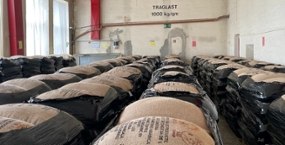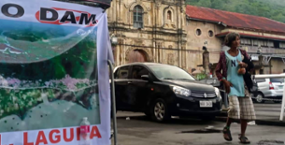Plant diseases and thunderstorms resulting in crop failure
Social and political consequences of global warming
At first, all you can see is a tiny yellow dot on the green leaf. Finally, there are no leaves at all and the twigs are rising into the air like naked arms. Roya is a fungal disease affecting coffee plants and currently causing dramatic crop failure, as the plant is not only losing its leaves but also the berries.
In Mexican Chiapas, rebellious Zapatista communities complain about crop failure of up to 75 per cent that is threatening not just Zapatista coffee coops' autonomy but also small-scale farmers existence. The spread of plant diseases is supported by plantation economy and monoculture in rural industries. Additional damage is due to thunderstorms and hurricanes accompanied by heavy rainfall and high wind speed.
A cup of coffee could tell quite a story...
…for instance, about social injustice as a consequence of industrialisation and world trade. While reasons for the above-mentioned plant disease are certainly manifold, an important cause for the disease's current dimension is the warmer climate due to increasing CO2 emissions of industrialised countries.
When the plant is infected, other than the application of pesticides just a radical cure seems adequate: removal or complete pruning hoping to preserve at least neighbouring coffee trees. Recently there has been success in spraying plants with another fungus impeding the spread and growth of the Roya fungal disease destroying the plant.
We can learn something from the coffee's example
Climate change and its consequences are aggravating global injustice. Historically, climate change has always had extensive social consequences. Bad harvests, famines and diseases as well as conflicts and wars as a result of competition for resources have been accompanied by migration movements in early history or are due to climate change like the so-called Little Ice Age in the Middle Ages. Similar developments can be observed in the context of current global warming.
There have always been thunderstorms and crop failure but extreme weather phenomenons and their consequences are increasing. Conflicts over access to water are also harbouring increasing potential for conflicts and wars. Additionally, increasing desiccation and desertification in many regions of the world is dispossessing people of their means of livelihood and is forcing them into migration. Reasons for flight movements are as exported as famines, diseases and many wars are.
Therefore, it is even more important to understand protests against climate change not just as protection of resources and the environment but as one of the most crucial political demands for participation and justice. Many indigenous communities have already addressed this in their struggles.











